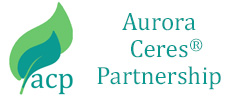Over the last few weeks Aurora Ceres has been discussing some of the key global issues, how these are fuelling Consumer Anxiety and what this means for innovation and NPD. It is also important to consider the impact the current situation is having, and will have, on food and supply chain security in the coming years, and how the products that emerge will be shaped by it.
Supply chain security has been something of an issue for a number of years, and the complexities of the food supply chain became even more apparent during the Horsemeat adulteration scandal of the early 2010’s. The role the food chain contributes to our overall well-being has come even more into focus with the COVID-19 outbreak, with strong suggestions and links to its origins being from a livestock market. This is then exacerbated as outbreaks in meat packing plants, sandwich factories and a Herefordshire broccoli farm, to name a few of the more well publicised outbreaks much closer to home. These highlight the potential frailty of the system, and consumer anxiety will peak at the merest thought that there is even the slightest risk of downstream infection from previously trusted sources. Thankfully there is strong evidence that any risk is minimal.
The demand for greater transparency in supply chain has been on the increase, especially with millennials and Gen-Zs expecting their trust to be earnt by the global players. COVID-19 is yet another reason why these generations are right to make such demands.
With that transparency comes greater supply chain security which will be increasingly important with the potential uncertainties and disruptions which could continue to prevail with the potential of sporadic local and national lockdowns.
This transparency and security are essential, as any supply chain becomes vulnerable when destabilised. As many systems run ‘Just-In-Time’, slight variations in purchasing behaviour can result in shortages leaving opportunity for illegal, sub-standard and adulterated products to enter the market. There is also the danger that decreased scrutiny during lock-down periods will have allowed gaps to appear, or discrepancies to be overlooked, allowing criminal and unauthorised activities to go unchecked. To our knowledge there has not been any evidence of this to date, but the risk is certainly present.
There has, however been suggestions that the ultimate cause of the COVID outbreak can be linked to an outbreak of African Swine Fever (ASF) in 2019, forcing a cull of up to 60% of the Chinese pig-herd to prevent infection, leading to an increase in demand for meat from ‘non-sanitary’ sources. The evidence for this is somewhat circumstantial, but is an important component of the discussion when it comes to food security and supply chain transparency.
What this ultimate means for product development is that provenance will become of upmost important, it will also underpin the ‘store-cupboard’ and familiar ingredient interpretation of clean label.




